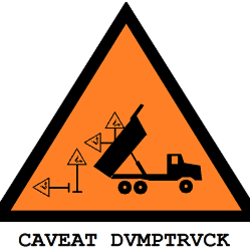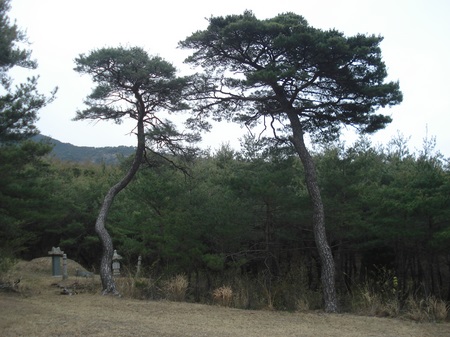Well, it hasn’t gone perfectly. Being alive, however, means I am lucky.
I grossly underestimated my ability to meet the challenges of the long-term, despite having coped pretty remarkably well on the short term. The great challenge, frankly, has been that the centrality of eating to daily life, not just for sustenance but for socializing, has collided with the fact that eating has been rendered permanently unpleasant. Eating is a chore, now – on par with cleaning the toilet or jogging, with genuine unpleasantness being inevitable during the task, and only a residual and mostly hollow sense of accomplishment afterward.
Last night, we went to a work dinner (회식) for a coworker’s birthday, and Curt said to me – incidental to something else we were discussing – “Life is nothing.” I reminded him that exactly one year ago, on 2013-07-03, he’d said the same aphorism to me, on the eve of my surgery (and reprising previous uses of the same, vaguely Buddhist expression, such as on the date of my biopsy). It’s meant to be reassuring, and sometimes, it is.
I will summarize here the past year, just for completeness sake (and then I can point people to this blog entry for the “short version” of my cancer story).
I was diagnosed with cancer of the tongue on 2013-06-25 and things moved very fast. By the following week I was checking into Korea’s National Cancer Center (국립암센터) – possibly one of the best cancer hospitals in the world but which happens to be in my neighborhood – and I underwent a 9 hour surgery to remove the tumor from the root of my tongue on 2013-07-04. I spent three nightmarish, hallucinatory days in the ICU before finally being released out into the general ward.
My hospital stay was 23 days. I had a pretty good recovery although I had an infection that necessitated an additional “emergency” surgery to remove some badly behaved parts in my neck and tongue again.
My friends Peter and Grace and my coworkers Helen and Curt all provided immense amounts of emotional support and material support. I haven’t in any way adequately repaid any of them their kindness during this time.
My brother arrived a week or so into my hospital stay, and his help was quite useful, too – Korean hospitals expect family members to do a lot of the work done by nurse-assistant types in western hospitals.
By the time I was discharged, I was feeling quite elated, and that lasted until a week or two into my radiation treatment phase, which began in September. As the radiation treatments progressed, my brother left but stepmother visited. I was on a very limited schedule for work, and so I did a lot of daytripping around with them during that long, complicated summer. In early October, I had finished the 30 days of radiation by the time my mother came to visit, but I was also feeling much less elated and much grumpier about my health. Ultimately, it seems that the post-radiation discomforts were mostly permanent – or at the least very long-term.
I have lost a great deal of my sense of taste: especially sweetness – sweet things are kind of just bland. I have a saliva shortage in my mouth, which is the main cause of my difficulty eating – when I chew foods they turn in to dry, unswollowable blobs that my handicapped tongue is unable to push to the appropriate place in my mouth. Sometimes, I will have to shove a finger into my mouth and manually push the bolus of food to the right spot for swallowing. That’s one of the reasons why I don’t really feel comfortable eating in public, anymore. I have to be very careful or can end up with a choking fit. This problem, however, is in ironic conjunction with a horrible phlegm problem in my sinuses and throat such as I never suffered from before the surgery. I am constantly hacking up gobs of nasty gunk, despite having a dry mouth. I experience “ghost” pain sometimes in my my missing nerves in my tongue, neck, and wrist, all places where nerves were severed for the surgery. My tongue gets “sore” after talking a lot, which despite everything, is still a tendency of mine (not to mention my profession, as a language teacher).
I think I have a pretty high tolerance for pain – I almost never take pain medication but suspect that I would be a candidate based on a best guess at comparing my symptoms to those of others. It’s possible that this chronic low-grade, permanent pain (in mouth, tongue, neck, throat) has to do with my affective struggles of, especially, the last few months.
My eating difficulty has had a side effect of being a very effective diet plan. If you want to lose a lot of weight, tongue cancer is a great way to do it! It seems like I have managed to stabilize at about 70 kg. We’ll see if I can stick with that.
I have been going in on a three-monthly basis to the hospital for CT scans to make sure I’m still cancer-free. In two weeks, I’m due for my first annual scan, which will be more thorough and include a PET scan.
There are times when I feel I made a deal with the devil. I worry that my post-cancer quality-of-life wasn’t “worth it.” Mostly, however, I remain grateful to be alive, knowing that it might not have worked out that way under different circumstances.
I’m going to discontinue these “X months cancer free” blog posts and perhaps even try to avoid discussing the post-cancer aspect of my existence much, as I feel it leads me to dwell more on the negative than I should. This entry is meant to be a kind of closing entry, then. Obviously, if something “new” comes along, I’ll share it.
 [daily log: walking, 5.5 km]
[daily log: walking, 5.5 km]

